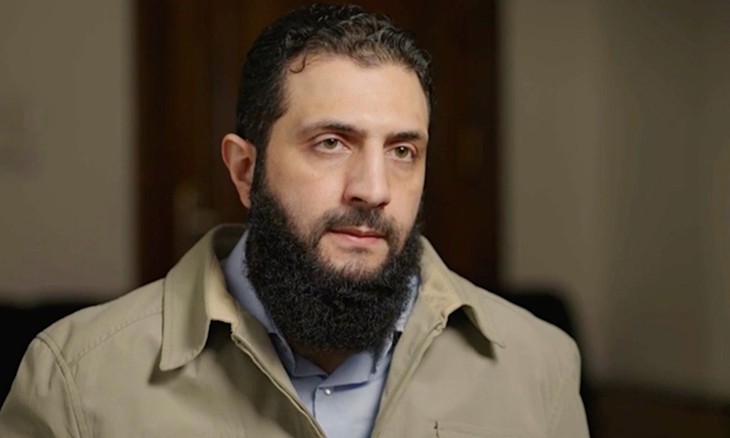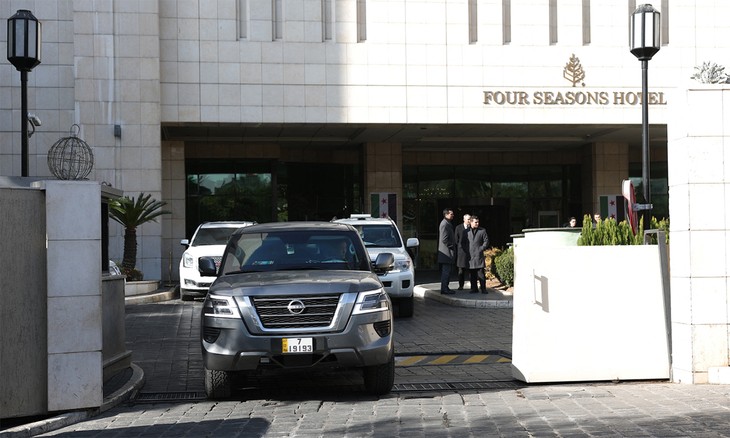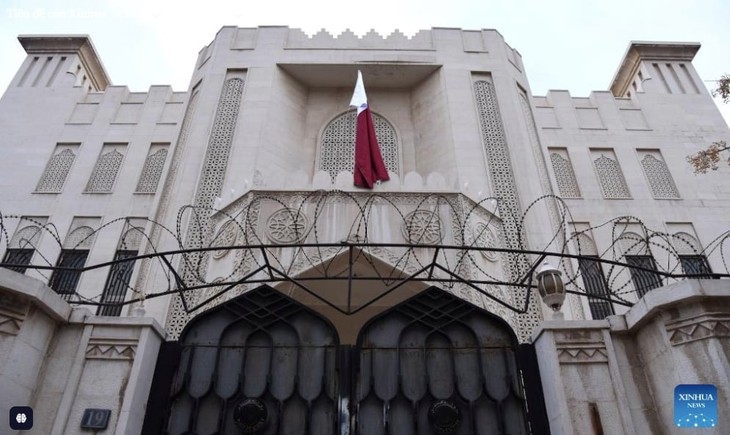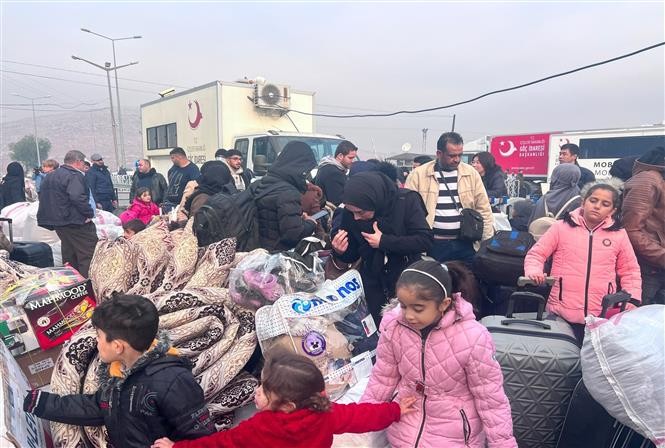(VOVWORLD) - It has been more than two weeks since Bashar Al-Assad's regime was toppled, and Syria’s new rulers and the international community are trying to build a roadmap to lasting peace and stability in Syria.
 Syria’s new leader Ahmed Al-Sharaa (Photo: PSB) Syria’s new leader Ahmed Al-Sharaa (Photo: PSB) |
The US Assistant Secretary of State for the Middle East Barbara Leaf and a high-level delegation on December 19 arrived in Syria’s capital Damascus for the first time in more than 13 years to discuss future relations with the new Syrian government. The visit marks the beginning of a new political phase in Syria after a decade of devastating conflict.
Positive diplomatic signs
After talks with Syria’s new leader Ahmed Al-Sharaa, the head of a group called Hayat Tahrir al-Sham (HTS), the US diplomatic mission said HTS has promised to ensure that terrorist groups will not pose a threat inside or outside Syria to the US or its partners in the region. The new Syrian government said it’s ready to build peaceful relations with the US. After the meeting, the US removed its 10 million USD bounty on Ahmed Al-Sharaa.
 The US delegation leaves a hotel in Damascus, Syria, December 20, 2024. (Photo: AFP) The US delegation leaves a hotel in Damascus, Syria, December 20, 2024. (Photo: AFP) |
The US’s nod to Syria’s new government paves the way for diplomatic approaches by other countries. On December 21, Qatar announced the reopening – after 13 years – of its embassy in Damascus. Saudi Arabia and Jordan have sent diplomatic delegations to Syria. Turkey, which played a leading role in recent political developments in Syria, reopened its embassy in Syria on December 14 and made a series of commitments to support the new Syrian government both diplomatically and militarily.
Countries that had close ties with Al-Assad’s administration have declared their support for Syria’s peace, stability, and sovereignty. Observers say recent unexpected political developments are pushing regional and world powers to compete for influence in Syria.
Bader Al-Saif, an expert with the UK’s Chatham House for the Middle East and North Africa Program, said this competition is taking place peacefully, but he warned that the peace process in Syria is extremely fragile, so excessive external interference should be avoided.
“The path for Syria's future is often told as one filled with chaos, unrest, and uncertainty, and by others, who are on the ground and celebrating, are ones who think that things will be rosy and all good news. I think it's not one or the other. It's going to be a mix of both and we need to be mindful that this is a work in progress.”
 The Qatari flag is raised at the Qatari Embassy in Damascus, Syria, December 21, 2024. (Photo: Xinhua) The Qatari flag is raised at the Qatari Embassy in Damascus, Syria, December 21, 2024. (Photo: Xinhua) |
HTS leader Ahmed Al-Sharaa said in his initial meetings with foreign diplomats that the new peace process in Syria must be conducted by the Syrian people.
“The most important thing is that the major powers agree on some common principles. First is Syria’s independence in decision-making, territorial integrity, and security. Next is helping Syria solve the socio-economic problems the Syrian people are struggling with,” said Ahmed Al-Sharaa.
Humanitarian matter
For the international community, Syria has turned a page and created an opportunity to ease the refugee problem, one of the biggest crises in the world. The UN forecasts that at least 1 million Syrian refugees will return to their country in the next six months. Millions more may return when the political and economic situation in Syria improves.
But the return of millions of Syrians will pose enormous humanitarian challenges because, after more than a decade of civil war, Syria’s economy is exhausted and the infrastructure in Aleppo, Hama, and Homs has been nearly destroyed.
Amy Pope, Director General of the International Organization for Migration, said, “What we see on the ground is that if there are overwhelming numbers of people who go home now into what is an incredibly fragile situation will overwhelm the country. It could risk greater more destructive impact on a very fragile peace process.”
 Syrian refugees return home via the Cilvegozu border gate, Reyhanli, Hatay province, Turkey, December 12, 2024. (Photo: Xinhua/VNA) Syrian refugees return home via the Cilvegozu border gate, Reyhanli, Hatay province, Turkey, December 12, 2024. (Photo: Xinhua/VNA) |
The UN International Commission of Inquiry on Syria (UNCIS) issued an urgent call last week for the international community to lift sanctions against Syria to facilitate the delivery of humanitarian aid to millions of people in need. UNCIS President Paulo Sérgio Pinheiro said the sanctions are having serious consequences for poor and vulnerable people in Syria. He said even a partial lifting of sanctions will help the reconstruction and improve people’s lives.
The Syrian interim government has outlined a stabilization plan. Acting Minister of Internal Trade Maher Khalil al-Hassan said the government is considering increasing wages up to 400%, eliminating government subsidies on certain strategic goods to liberalize the economy, and curbing profiteering. These measures will help Syrians stabilize their lives until stronger international aid is deployed.